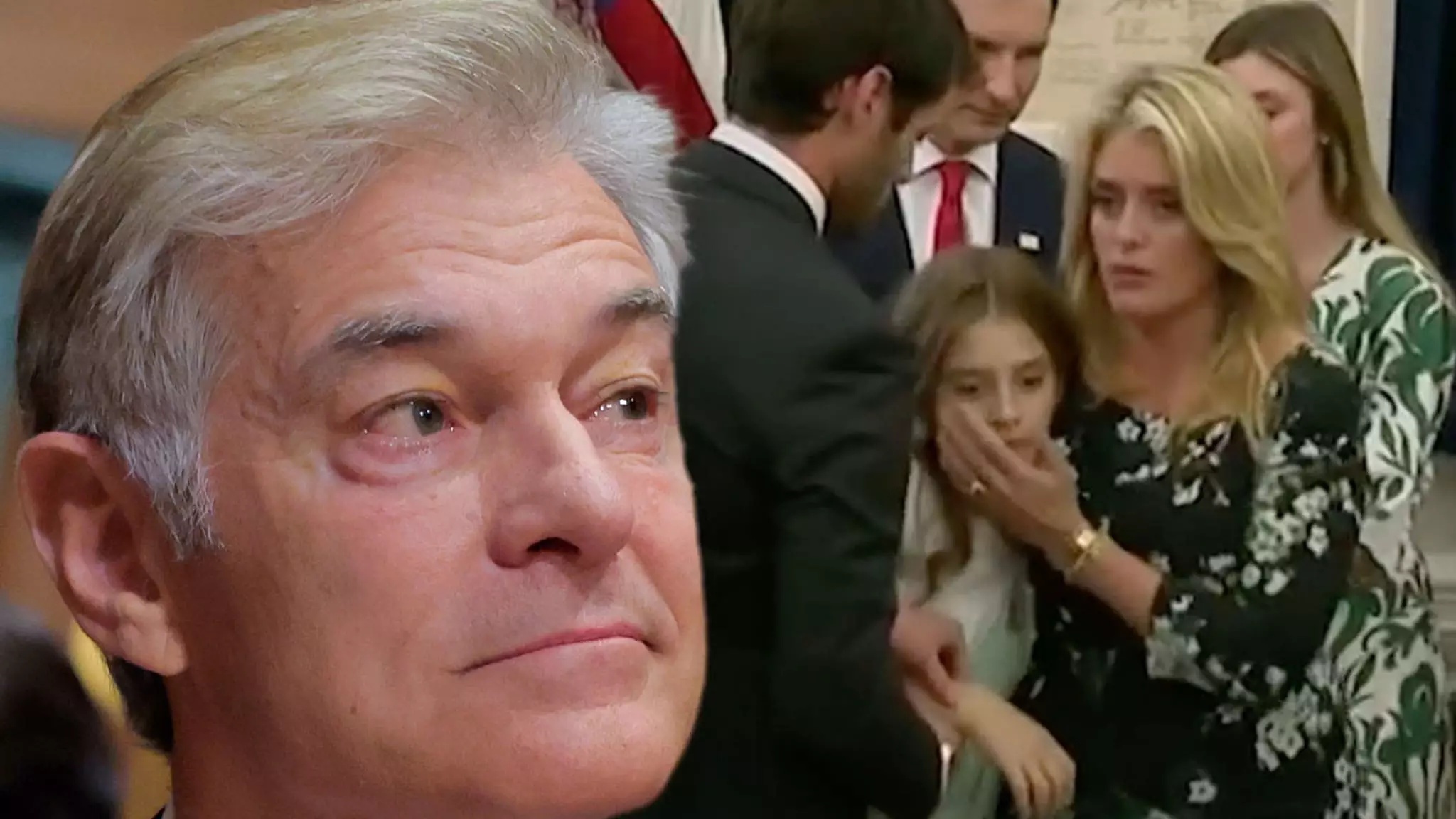When unexpected health scares strike in the most prestigious of places, such as the Oval Office, the gravity of the situation is amplified. Last week, Daphne Oz found her daughter Philo collapsing during her grandfather, Dr. Mehmet Oz’s, swearing-in ceremony as the Administrator of the Centers for Medicare and Medicaid Services. This frightening episode could have easily spiraled into chaos, but it instead became a poignant reminder of familial love and the importance of compassion in leadership.
In a social media world dominated by sensationalism, Daphne took to Instagram to share not only a relief-filled update on Philo’s condition but also to highlight the remarkable response from those around her—including none other than President Donald Trump. The way that public figures navigate tense situations often sets the tone for how families cope with emergencies, and in this instance, the president’s interaction with Daphne’s children showcased a level of empathy that deserves recognition.
Family Strength in Crisis
The realization that Philo was unharmed after fainting is a blessing, but what’s even more compelling is the support system surrounding her. Daphne’s Instagram post beautifully captured the joy of family, even amid fear. She shared heartwarming photos of her family dressed elegantly outside the White House and moments where her children met the president—making an otherwise intimidating experience into something memorable. This contrast between the anxiety of the medical scare and the joy of family gatherings reinforces our need for love and unity during difficult times.
Moreover, Daphne’s reference to the White House medical team illustrates the behind-the-scenes work of countless professionals who ensure not only the wellness of leaders but also their families. Her acknowledgment of the care provided during this crisis helps demystify the often-complex workings of public service and health care, highlighting the human aspect of institutional responsibilities.
Human Connection in Leadership
Daphne emphasized her gratitude towards President Trump for his compassionate handling of the situation—traits that many often overlook when considering the pressures faced by those in office. In an age where political figures can be seen as disconnected from everyday citizens, moments like these remind us that leaders possess the capacity for genuine empathy. The warmth he displayed when interacting with Philo and her sibling can serve as a model for conduct that many aspire to replicate, reinforcing the idea that humanity should prevail even in politics.
Additionally, the touching reflections Daphne shared regarding her father’s consistent dedication to saving lives further anchor the narrative. It’s evident that Dr. Oz’s impact extends beyond celebrity status; he embodies an ethos of service that resonates with his family and their experiences. The reassurance that Philo will have access to her grandfather’s expertise if further medical attention is needed speaks volumes about the bond they share and the safety net family can provide in times of turmoil.
In closing, what unfolded during that harrowing moment at the White House serves as a powerful testimony to the importance of connection, compassion, and the undying support that families offer each other. This incident, rather than a mere scare, has blossomed into a vibrant story of resilience, highlighting the leads that public figures and families can provide—not just during moments of crisis, but throughout life’s unfolding dramas.

